Faster-than-light travel and communication are the conjectural propagation of matter or information faster than the speed of light. The special theory of relativity implies that only particles with zero rest mass may travel at the speed of light, and that nothing may travel faster.
A tachyon or tachyonic particle is a hypothetical particle that always travels faster than light. Physicists believe that faster-than-light particles cannot exist because they are inconsistent with the known laws of physics. If such particles did exist they could be used to send signals faster than light. According to the theory of relativity this would violate causality, leading to logical paradoxes such as the grandfather paradox. Tachyons would exhibit the unusual property of increasing in speed as their energy decreases, and would require infinite energy to slow to the speed of light. No verifiable experimental evidence for the existence of such particles has been found.
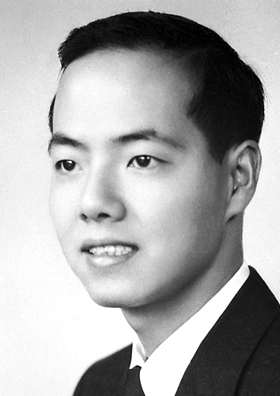
Tsung-Dao Lee is a Chinese-American physicist, known for his work on parity violation, the Lee–Yang theorem, particle physics, relativistic heavy ion (RHIC) physics, nontopological solitons, and soliton stars. He was a university professor emeritus at Columbia University in New York City, where he taught from 1953 until his retirement in 2012.

Shiing-Shen Chern was a Chinese American mathematician and poet. He made fundamental contributions to differential geometry and topology. He has been called the "father of modern differential geometry" and is widely regarded as a leader in geometry and one of the greatest mathematicians of the twentieth century, winning numerous awards and recognition including the Wolf Prize and the inaugural Shaw Prize. In memory of Shiing-Shen Chern, the International Mathematical Union established the Chern Medal in 2010 to recognize "an individual whose accomplishments warrant the highest level of recognition for outstanding achievements in the field of mathematics."

John Lighton Synge was an Irish mathematician and physicist, whose seven-decade career included significant periods in Ireland, Canada, and the USA. He was a prolific author and influential mentor, and is credited with the introduction of a new geometrical approach to the theory of relativity.
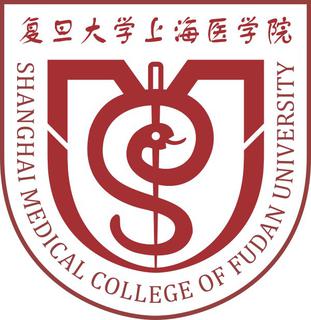
The Shanghai Medical College, Fudan University, formerly the independent Shanghai Medical University (SHMU), is one of the oldest and most prestigious medical schools in China. Clinical medicine of the Shanghai Medical College of Fudan University is consistently ranked among the top three medical schools in China and #45 globally by Times Higher Education World University Rankings as of 2022. Its "Clinical Medicine" also ranked #73 globally by the U.S. News & World Report globally.

Robert M. Wald is an American theoretical physicist and professor at the University of Chicago. He studies general relativity, black holes, and quantum gravity and has written textbooks on these subjects.

Xie Xide, also known as Hsi-teh Hsieh and as Hilda Hsieh, was a Chinese physicist. She was president of Fudan University from 1983 to 1989, and remained as advisor to the university from 1989 until her death. She helped to set up the university's Centre for American Studies and founded its Modern Physics Institute in 1977.
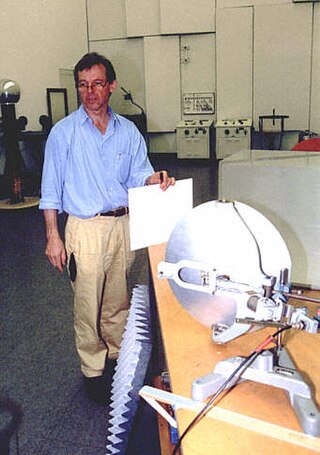
Günter Nimtz is a German physicist, working at the 2nd Physics Institute at the University of Cologne in Germany. He has investigated narrow-gap semiconductors and liquid crystals. His claims show that particles may travel faster than the speed of light when undergoing quantum tunneling.
Daoxing Xia is a Chinese American mathematician. He is professor emeritus at the Department of Mathematics, Vanderbilt University in the United States. He was elected an academician of the Chinese Academy of Science in 1980.
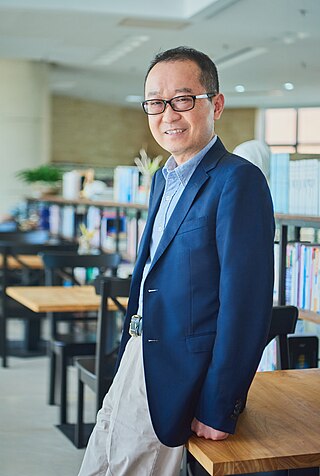
Zhang Jun is a Chinese economist and currently serves as Dean of School of Economics at Fudan University in Shanghai.

Riazuddin, also spelled as Riaz-Ud-Din, was a Pakistani theoretical physicist, specialising in high-energy physics and nuclear physics. Starting his scientific research in physics in 1958, Riazuddin was considered one of the early pioneers of Pakistan's nuclear weapons development and atomic deterrence development. He was the director of the Theoretical Physics Group (TPG) of the Pakistan Atomic Energy Commission (PAEC) from 1974 until 1984. Riazuddin was a pupil of the winner of the 1979 Nobel Prize in Physics, Abdus Salam.
Criticism of the theory of relativity of Albert Einstein was mainly expressed in the early years after its publication in the early twentieth century, on scientific, pseudoscientific, philosophical, or ideological bases. Though some of these criticisms had the support of reputable scientists, Einstein's theory of relativity is now accepted by the scientific community.

In 2011, the OPERA experiment mistakenly observed neutrinos appearing to travel faster than light. Even before the source of the error was discovered, the result was considered anomalous because speeds higher than that of light in vacuum are generally thought to violate special relativity, a cornerstone of the modern understanding of physics for over a century.
Ni Guangjiong is a Chinese physicist. He began studies in physics about 1950, and became a Doctor of Philosophy in 1955. He married Su Qing, a physics professor, in 1960. He published his first book in 1978. He holds a Chair in Physics at Fudan University, Shanghai. He is the director of Modern Physics Institute and the head of the Division for Theoretical Physics.
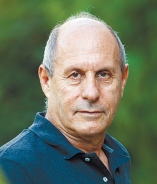
Tsvi Piran is an Israeli theoretical physicist and astrophysicist, best known for his work on Gamma-ray Bursts (GRBs) and on numerical relativity. The recipient of the 2019 EMET prize award in Physics and Space Research.
Cosimo Bambi is an Italian relativist and cosmologist who is currently a professor of physics at Fudan University in Shanghai, China.
Cao Tianqin, also known as Tien-chin Tsao, was a Chinese biochemist and a professor at the Shanghai Institute of Biochemistry. With a research focus on muscle protein, he discovered the myosin light chain and pioneered the study of tropomyosin and paramyosin using electron microscopes. He was a strong advocate and main leader for the synthesis of insulin, and spearheaded the research of plant viruses in China.
Zhou Tongqing, also known as Tung-Ching Chow, was a Chinese optical physicist. After earning his Ph.D. from Princeton University, he taught at Peking University, National Central University, Shanghai Jiao Tong University, and Fudan University. He led the development of China's first X-ray tube in 1953 and was elected a founding member of the Chinese Academy of Sciences in 1955. His research was disrupted when he was subject to severe persecution during the Anti-Rightist Campaign and the Cultural Revolution. Although later politically rehabilitated, he was plagued by poor health for the rest of his life.

Xu Zidong is a Chinese literary historian, critic and academic. He is a Professor Emeritus of Chinese at Lingnan University and chair of Chinese department from 2008 to mid 2010s. He is visiting professor at University of Hong Kong as of the 2021–22 academic year. He has written extensively on 20th-century Chinese literature, Hong Kong Literature, cultural studies, and Cultural Revolution literature studies.











